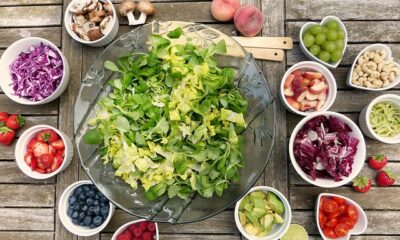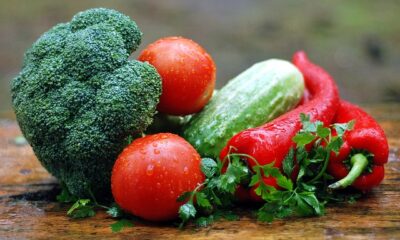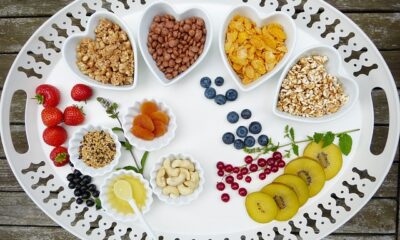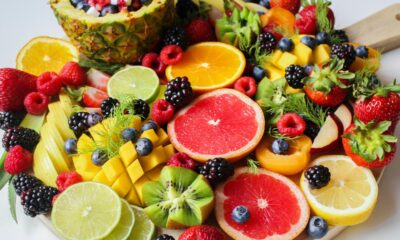Uncategorized
Cherish Every Bite: Nourishing Your Soul with 7 Wholesome Food Choices for Aging Well

As we age, our bodies undergo various changes, including changes in metabolism, nutrient absorption, and physical capabilities. Therefore, it becomes increasingly crucial for older adults to pay attention to their dietary choices to maintain optimal health and well-being. In this article, we will explore seven healthier food choices specifically tailored to meet the nutritional needs of older adults.
Understanding the Nutritional Needs of Older Adults
Nutrient Requirements
Older adults often require fewer calories but higher amounts of certain nutrients such as calcium, vitamin D, vitamin B12, and fiber to support bone health, muscle strength, and overall vitality.
Common Nutritional Deficiencies
Many older adults experience deficiencies in essential nutrients due to factors such as decreased appetite, impaired absorption, and medication interactions. Common deficiencies include vitamin D, calcium, vitamin B12, and omega-3 fatty acids.
Factors Affecting Food Choices in Older Adults
Physical Limitations
Physical limitations such as dental problems, difficulty chewing or swallowing, and reduced mobility can impact an older adult’s ability to prepare and consume nutritious meals.
Budget Constraints
Limited financial resources may restrict access to fresh, nutrient-dense foods, leading to reliance on cheaper, processed options that are often high in sodium, sugar, and unhealthy fats.
Taste and Preferences
Changes in taste perception and preferences, as well as the loss of appetite, can influence food choices and decrease the enjoyment of meals, leading to inadequate nutrient intake.
7 Healthier Food Choices for Older Adults
1. Fruits and Vegetables
Rich in vitamins, minerals, antioxidants, and dietary fiber, fruits and vegetables are essential for maintaining overall health and reducing the risk of chronic diseases such as heart disease, diabetes, and certain cancers.
2. Whole Grains
Whole grains such as brown rice, quinoa, oats, and whole wheat bread provide essential nutrients and fiber to support digestive health, regulate blood sugar levels, and reduce the risk of cardiovascular disease.
3. Lean Protein Sources
Incorporating lean protein sources such as poultry, fish, beans, lentils, tofu, and low-fat dairy products into meals helps maintain muscle mass, promote satiety, and support tissue repair and immune function.
4. Dairy or Dairy Alternatives
Dairy products or fortified dairy alternatives like almond milk or soy yogurt are important sources of calcium and vitamin D, which are essential for bone health and preventing osteoporosis.
5. Healthy Fats
Including sources of healthy fats such as avocados, nuts, seeds, and olive oil in the diet can help reduce inflammation, support brain health, and improve cholesterol levels.
6. Hydration
Staying hydrated is crucial for older adults to maintain proper bodily functions, cognitive function, and temperature regulation. Encourage drinking water throughout the day and consuming hydrating foods such as soups, fruits, and vegetables.
7. Herbs and Spices
Using herbs and spices to flavor meals instead of relying on salt can enhance the taste of dishes while reducing sodium intake, which is important for managing blood pressure and overall heart health.
Tips for Incorporating Healthier Food Choices
Meal Planning and Preparation
Plan meals ahead of time, make a grocery list, and prepare meals in batches to save time and ensure access to nutritious options throughout the week.
Reading Food Labels
Become familiar with reading food labels to identify hidden sugars, unhealthy fats, and artificial additives. Choose products with minimal processing and ingredients you can pronounce.
Portion Control
Practice portion control to prevent overeating and maintain a healthy weight. Use smaller plates, bowls, and utensils to help regulate portion sizes and avoid excessive calorie intake.
Benefits of Making Healthier Food Choices
Improved Energy Levels
Eating a balanced diet rich in nutrients provides the energy needed to stay active, engage in daily activities, and enjoy life to the fullest.
Enhanced Immune Function
Nutrient-dense foods support a strong immune system, helping older adults ward off infections and illnesses more effectively.
Better Management of Chronic Conditions
Healthy eating habits can help manage chronic conditions such as diabetes, hypertension, and arthritis by controlling blood sugar levels, blood pressure, and inflammation.
Conclusion
Incorporating healthier food choices into the diet can significantly impact the health and well-being of older adults. By focusing on nutrient-dense foods, staying hydrated, and practicing mindful eating habits, older adults can enjoy improved energy levels, enhanced immune function, and better management of chronic conditions, leading to a higher quality of life.
FAQs
What are some easy ways to add more fruits and vegetables to my diet?
One easy way to incorporate more fruits and vegetables into your diet is to include them in every meal and snack. For example, add berries to your breakfast cereal, include a side salad with lunch and dinner, and enjoy fresh fruit as a dessert or snack.
How can I make healthier food choices on a budget?
To make healthier food choices on a budget, focus on purchasing seasonal produce, buying in bulk, and opting for store-brand items. Additionally, consider shopping at farmers’ markets or joining a community-supported agriculture (CSA) program for affordable, locally grown produce.
Are there any specific foods older adults should avoid?
Older adults should limit their intake of processed foods high in added sugars, unhealthy fats, and sodium. Additionally, individuals with specific health conditions or dietary restrictions should consult with a healthcare professional for personalized dietary recommendations.
Should older adults take supplements to meet their nutritional needs?
While supplements can be beneficial for filling nutrient gaps, they should not replace a balanced diet rich in whole foods. It’s best to obtain nutrients from food whenever possible and use supplements as a complement to a healthy lifestyle.
How can I encourage my elderly loved ones to eat healthier?
Encourage your elderly loved ones to eat healthier by involving them in meal planning and preparation, exploring new recipes together, and offering support and encouragement. Additionally, lead by example and prioritize healthy eating habits in your own life.
-

 Uncategorized2 months ago
Uncategorized2 months ago15 Deceptive Myths About Nutritious Eating We’ve Embraced for Generations
-
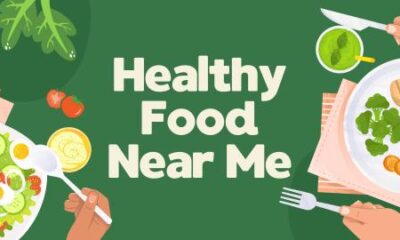
 Uncategorized1 month ago
Uncategorized1 month agoNavigating the Pursuit of Wellness: Unveiling the Domain of Healthy Food Near Me
-

 Snacks and Appetizers5 months ago
Snacks and Appetizers5 months agoCrunchy crisps from the oven: the perfect snack without the shame
-

 Lunch and Dinner Recipes5 months ago
Lunch and Dinner Recipes5 months agoSeafood sensation: delicious and nutritious fish recipes for a healthy dinner
-

 Breakfast Recipes6 months ago
Breakfast Recipes6 months agoHomemade power bar: the excellent grab-and-go breakfast option for an active early morning
-

 Lunch and Dinner Recipes5 months ago
Lunch and Dinner Recipes5 months agoVegetarian Stir-Fry: A Burst Of Health And Flavor In Every Bite
-

 Snacks and Appetizers6 months ago
Snacks and Appetizers6 months agoDeliciously hot Guacamole and salsa recipes to enhance the great experience
-

 Breakfast Recipes6 months ago
Breakfast Recipes6 months agoProtein-Packed Pancakes: A Delicious Method To Start Your Day




